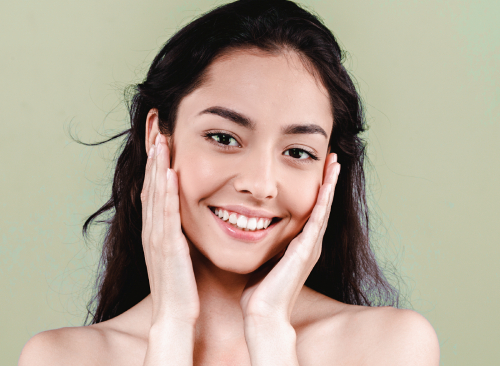Yes, you read it correctly from TikTok‘s favourite dermatologist, Dr Muneeb Shah. Ramadan and fasting are scientifically proven to be beneficial for your skin, body, spirit, and overall health.
For the uninitiated, Ramadan is a time of self-improvement, spiritual reflection, and devotion to Allah. And fasting during this month is one of the Five Pillars of Islam — basic acts of worship mandatory for all Muslims.
@dermdoctor Does Ramadan and Intermittent Fasting Benefit the Skin? #ramadan #skincare #psoriasis #hidradenitissuppurativa #acne #dermdoctor #doctorlyunhinged
Known for debunking almost every beauty or health myth there is and for providing his engaged viewers with trustable reviews, Dr Shah has recently shared in-depth about how intermittent fasting improves one’s skin on his podcast.
What is intermittent fasting?

Credit: Anna Tarazevich/Pexels
This dietary practice involves not eating for a certain period of time and consuming food during a designated time period, much like fasting during Ramadan month.
The effects of intermittent fasting on your body and skin are complex. It depends on several factors like your lifestyle, your individual health status, and the duration and frequency of the fasting periods. There are also the factors of stress, sleep, and skincare routine that should be considered too.
What happens to your body during fasting?

During intermittent fasting, your body undergoes many changes to adjust to the reduced calorie intake. You’d think that fasting will have adverse effects on your body, what with lesser water and nutrients consumed, but that’s certainly not the case!
Instead, there’s been studies and research done to show that one of the most significant changes in your body is a decrease in the levels of inflammation.
Inflammation is a natural response of the body to injuries or infections, but chronic inflammation can result in health problems, including skin diseases like acne, psoriasis, and hidradenitis suppurativa (a painful skin condition that causes abscesses and scarring on the skin).
So those with sensitive, reactive skin will benefit the most from fasting since a reduced level of inflammation in the body should improve the skin overall. Clinical studies have also proven that psoriasis and hidradenitis suppurativa are improved during Ramadan for those who are fasting.
@ermaderma Ramadan and Skin care! #skincare #ramadan #ramadan2023 #skin #moisturiser #moisturiser_for_dryskin #moisturizer #fasting #fastingtips #wudu #ramadanmoments #ramadanmubarak #muslim #muslimtiktok #dermatologist #dermatology #dermatologylife
However, your skin does get dehydrated from the lack of water, so do remember to moisturise your skin and drink lots of water when you break fast!
Should you start fasting intermittently?

Credit: Engin Akyurt/Pexels
For those who don’t partake in Ramadan, you can definitely start fasting for its positive effects.
Other than reducing inflammation, intermittent fasting can also prevent cancer, reduce oxidative stress, induce various cellular repair processes, and help you lose weight and visceral fat. There are also studies to show that your insulin resistance is decreased which lowers the risk of type 2 diabetes; and that your metabolic features will be improved which is known to be good for the brain’s health.
@nutritionistkristen My skin was so bad last year! #nutritionist #wellness #healthy
However, more research is required for us to fully understand the exact mechanisms behind these improvements and whether they translate to other types of intermittent fasting. Before you start any new dietary practices, especially if you have any current health conditions, make sure you speak with a healthcare professional.
Tune in to Dr Shah’s podcast, Doctorly Unhinged, here, where he discusses everything from facials, manicures, aesthetic treatments, skincare trends, and the occasional lifestyle topics or social issues.
Listen to the full episode where Dr Shah speaks on the benefits of Ramadan on Spotify and Apple Podcasts.
Related reads:
- 17 beauty services for your Hari Raya 2023 prep, with Eid-citing deals of up to 90% off!
- Does skin fasting really work? Everything you need to know about this new skincare trend
- How to reduce stubborn belly fat and bloating without doing a single sit-up
Feature image credit: @doctorly/Instagram, @thatnextlevelgirl/TikTok


